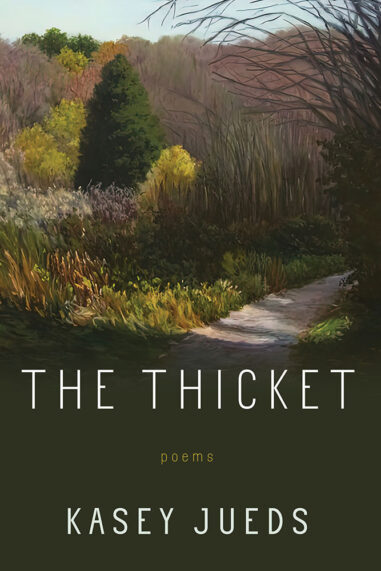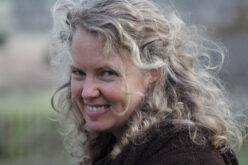The Thicket opens into intimate encounters with the more-than-human world—rivers, birds, stones—and with a “you” that is not a person, necessarily, but also not not a person: maybe God, maybe an aspect of the self, maybe neither or both. Often speaking of/to the small or overlooked (weeds by a roadside, an abandoned silo), the poems orient themselves toward edges, transitional spaces like the one where fields shift into woods. Where does one body stop? The Thicket takes an interest in becoming, one thing flowing into something else.
Excerpt from “At Cape Henlopen”
All night wind insists in the trees, its unsteady hush
funneling us down into sleep under the tender
shelter the oaks, even leafless, make—all night
their trunks creak and sigh and speak. Speak
to me—I think the word protect until its edges
dissolve, inside the tent that wraps us
like another, thinner skin, rocked and chastened
by the wind that doesn’t cease . . .


